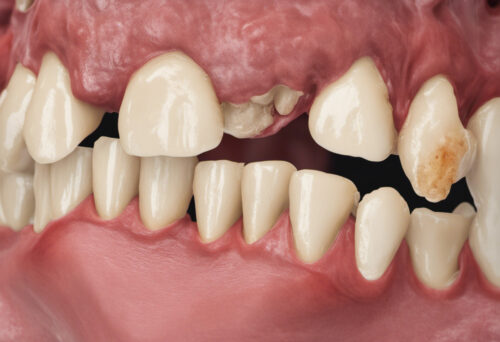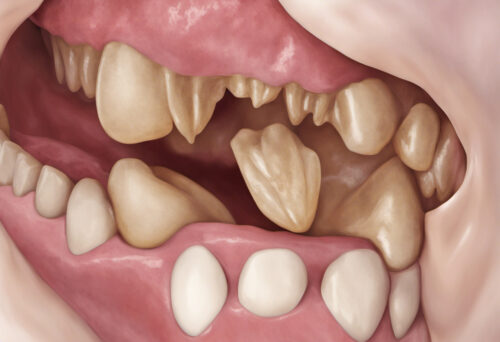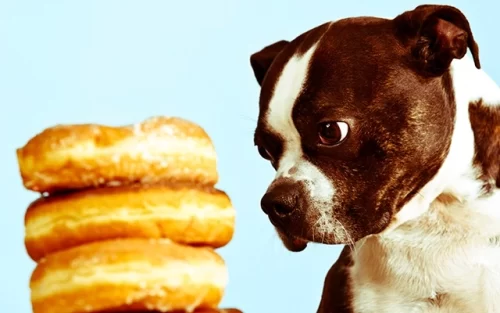For the countless dog-lovers among us, the heart-wrenching thought of any potential health issues in our beloved canine friends is a constant concern. Their wagging tails and puppy eyes enrich our lives every single day, but are we doing our part in ensuring their health and wellness? One ailment, in particular, that warrants our utmost attention is oral tumors in dogs. This silent afflictive condition can often go unnoticed, hence the importance of understanding the key signs, so that you can detect canine oral tumors early and seek appropriate veterinary attention.
The Real Deal with Oral Tumors in Dogs
Oral tumors in dogs are sporadic, malignant growths that can form on any part of a dog’s mouth. A tumor can be benign or malignant, but even benign growths can cause discomfort and difficulties for your pet. Identifying the key signs of these tumors is a crucial first step in enabling timely intervention and treatment for your devoted friend.
1. Unusual Oral Discharge
Is your dog drooling excessively? Is there blood in his saliva? These could be indicators of an oral tumor. The American Kennel Club notes that unusual oral discharge can often signify trouble and warrants a quick visit to your vet.
Detecting Oral Tumors in Dogs: Signs to Watch Out For
2. Changes in Eating Habits and Weight Loss
Oral tumors can make chewing and swallowing food quite painful for dogs, which can, in turn, lead to sudden changes in their eating habits. If your dog appears hesitant to eat, struggles with hard food, or has lost weight inexplicably, it’s time to consult your vet. According to a study from the National Institutes of Health, weight loss is a common symptom amongst dogs with oral tumors.
3. Visible Growth or Swelling
A visible growth or swelling in your dog’s mouth, which seems to cause discomfort or appears to grow over time, could indeed be a tumor. The NC State Veterinary Hospital recommends regular oral check-ups at home, as early detection can make a significant difference to treatment outcomes.
4. Bad Breath
Bad breath or halitosis is often attributed to poor dental health; however, persistent bad breath that doesn’t improve with normal dental hygiene could indicate an underlying oral tumor. The WebMD Pet notes that persistent bad breath in dogs shouldn’t be ignored and requires veterinary investigation.

5. Changes in Behaviour
Changes in your dog’s behaviour such as sudden aggression, irritability or depression may be signs of discomfort or pain caused by an oral tumor. The Animal Planet explains that our furry companions, being masters of hiding pain, might manifest it through alterations in their mood instead. So, if you observe peculiar changes in your pet’s behaviour, bring it to your vet’s attention immediately.
6. Difficulty in Swallowing or Chewing
Is your dog having trouble swallowing or chewing their food? This could be an indication of an oral tumor interfering with their ability to do so. An article on the PetMD website informs us that dogs who suddenly develop problems with swallowing or chewing should be examined by a vet, as these symptomatic behaviours might be attributable to growths in their oral cavity.
Steps for Early Detection and Response
Regular Oral Examinations
Early detection of canine oral tumors begins with regular oral examinations at home and professional check-ups at a vet clinic. Always be mindful of the signs and involve your trusted veterinarian on noticing consistent symptoms. The VCA Hospitals suggest scheduling half-yearly or annual routine dental check-ups depending upon the age and breed of your dog.
Biopsy for Confirmation
If an oral mass or growth is identified, your vet may recommend a biopsy. This test will help determine whether the growth is cancerous or benign. Reassuringly, ASPCA Pro underscores the importance for biopsy in diagnosing and guiding the subsequent treatment.
Treatment and Follow Up
Treatment options may vary according to the type, location and size of the tumor found. Removal of the tumor through surgery, radiation therapy, or chemotherapy are among the most common strategies. The Blue Cross provides a comprehensive guide on such treatments and the necessary follow-ups. However, every dog is unique, and treatment should be tailored to individual needs and circumstances.
Remember, your observant eye teamed with the right knowledge and consistent, preventative care can go a long way in ensuring your dog’s mouth remains healthy and free from oral tumors. After all, a healthy mouth makes for a happy dog!

Understanding the Cause and Risk Factors
While there is no single direct cause for the development of oral tumors in dogs, some breeds are more susceptible due to genetic predisposition. It’s important to be aware of this, especially when it comes to breeds like boxer dogs, golden retrievers, and cocker spaniels. An informative article available on National Institutes of Health discusses in depth such genetic implications. Also, age plays a substantial role as oral tumors are more prevalent in middle-aged to senior dogs.
Prevention: Better Safe than Sorry
Dental Care Routine
Taking care of your dog’s oral hygiene on a regular basis can significantly reduce the likelihood of oral tumors. Simple hygiene measures such as regular teeth cleaning, providing chew toys for dental stimulation and providing a well-balanced diet should be part of the routine. An insightful guide by Cesar’s Way can assist you in giving your dog the appropriate dental care.
No Smoke Zones
It’s worth mentioning that exposure to tobacco smoke has been linked to an increased risk of oral tumors in dogs. So, maintaining a smoke-free environment for your dog is critical for his oral health. An article on Science Daily talks about the implications of passive smoking on our pets.
Optimism: Half the Battle
An embrace of optimism is paramount when dealing with the frightening possibility of oral tumors in dogs. While the diagnosis may seem gloomy, remember that early detection generally leads to highly favorable results. Besides, just as Penn Vet Medicine reassures us – medical advancements are increasingly resulting in better treatment options and improved survival rates!
Lastly, always remember, the best you can do for your dog is to keep his routine vet appointments, be aware of the signs and symptoms, and provide him with the love and comfort he needs while dealing with any health issues. As the saying goes, a dog is a man’s best friend – let’s be theirs too, particularly during trying times.



